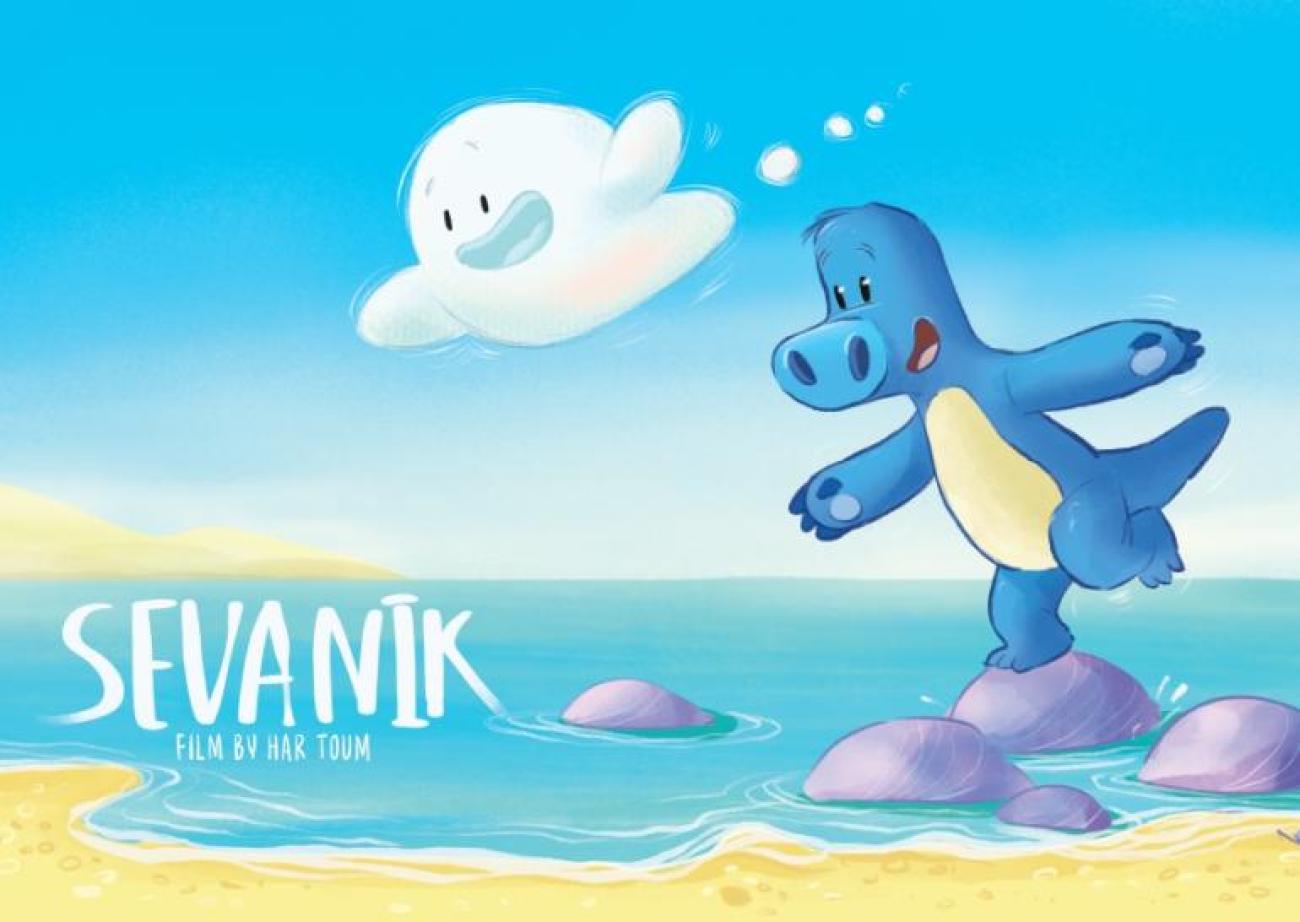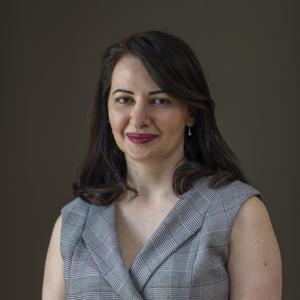National Cinema Center of Armenia, On/Off Studio, Austrian Development Agency, and UNICEF unveil Sevanik – the blue dragon of Lake Sevan.
In the framework of ReAnimania (ReA) International Film and Comics Art Festival, UNICEF and partners, with the leadership of the National Cinema Center of Armenia and On/Off Studio, unveiled their latest production for children: Sevanik, a blue baby dragon from Lake Sevan in Armenia. The short animated film features Sevanik as he wakes up from his deep sleep in the lake and embarks on an adventure with Ampik, his fluffy cloud friend. The cloud follows Sevanik's every move and emotion. But one day, while exploring outside of the lake, Sevanik gets bitten by a mosquito. This event leads to unexpected changes in their lives and friendship.
Through this short story of Sevanik and his friend Ampik, children will explore themes of friendship, care and overcoming differences, while also exploring how environmental pollution can affect the ecosystem around Lake Sevan.
“The narrative delves into essential themes of friendship, mutual respect, care, loyalty, and dedication. These are universal values that resonate across cultures and generations, shaping the character development and socialization of children worldwide,” said Harutyun Tumaghyan, the Director of Sevanik.
At the MarAni (Market of Animation business forum) platform of the ReA Festival, the short film received a special mention prize from the jury, recognizing its enormous potential for international collaboration.
“Sevanik, inspired by the beauty of Lake Sevan, has a unique national appeal and is a cherished addition to UNICEF’s work on climate education and on empowering children and young people to become resilient and adapt themselves and their communities to the changing climate,” said Christine Weigand, UNICEF Representative in Armenia. “To UNICEF, Sevanik is not only a heartwarming story, but also an educational tool that can help children and adults alike navigate the complexities of environmental protection as well as social interactions and inclusion.”
UNICEF and partners plan to support the short film with the development of an activity workbook for young children and elementary schools as well as a toolkit for educators on curating an in-classroom discussion of environmental pollution and degradation. Partners also hope to continue featuring future adventures of Sevanik and his friends. From 2023 to summer of 2024, the short film will be screened through cinema halls, theatres and educational centers and institutions.
Sevanik will enhance UNICEF’s work on empowering young people and communities to mitigate the effects of the changing climate on them. For the past three years, UNICEF has supported learning on climate change and environmental issues in public schools through an integrated and enhanced curricula and the application of 21st century skills to link in-class learning to student projects improving the environment in their communities. UNICEF also works with regional administrators and local government representatives to develop viable mechanisms for integrating strategic climate action for children and adolescents in the community development plans and budgets.







